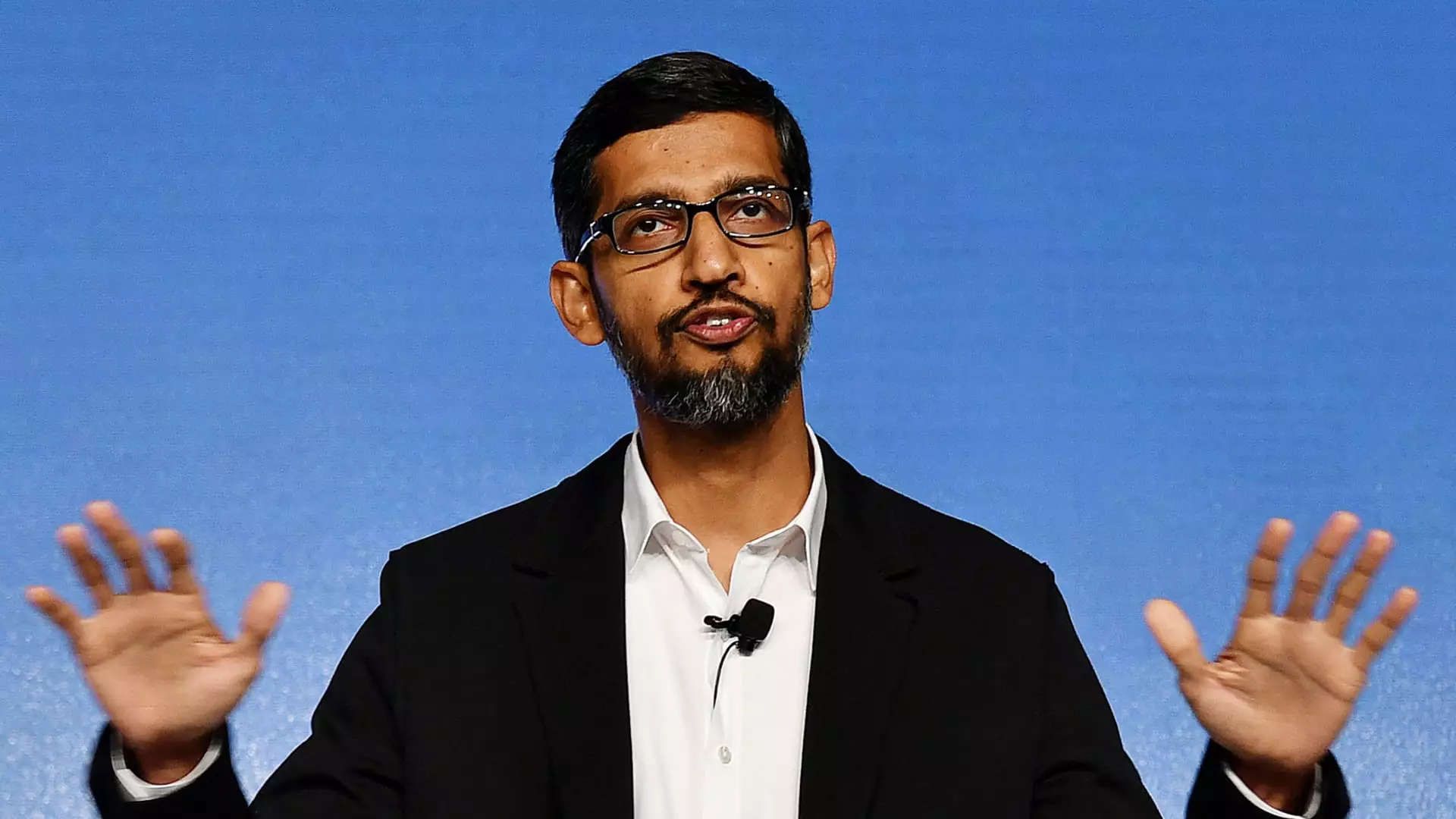In the landscape of modern corporate culture, tech giants like Google often find themselves navigating the tangled web of employee expression and corporate governance, especially during politically charged moments such as elections. Recent reports have shed light on Google’s increased efforts to moderate internal discussions regarding politics, marking a notable shift in how the company approaches free speech within its ranks.
As the upcoming U.S. elections approached, Google executives issued stern warnings to employees regarding the nature of discussions on the company’s internal forum, Memegen. This platform initially functioned as a space for lighthearted memes and community engagements but has become a contentious area for political dialogue. Communication reviewed by CNBC revealed efforts from leadership to dissuade employees from airing their political viewpoints, with executives urging staff to focus on maintaining the company’s reputation as a bastion of reliable information.
CEO Sundar Pichai reinforced this directive via a memo emphasizing Google’s responsibility to provide high-quality information across its various platforms, including Search, News, and YouTube. His statements reflect a growing unease about the intertwining of personal political opinions and professional standards within the Google ecosystem. Pichai articulated the need for employees to uphold the company’s image, highlighting the trust consumers place in Google services devoid of political bias.
Despite the management’s attempts to quash political rhetoric internally, many employees continue to use Memegen to voice their opinions on election-related subjects and company policies. This raises significant questions about the culture of free expression within a workplace that initially branded itself as open and inclusive. Employees have shown resistance against the new restrictions, claiming they infringe on individual rights and create a chilling effect for anyone wanting to discuss important social issues.
Historically, Google’s stance towards internal political discussions has fluctuated. The company’s 2019 implementation of a policy forbidding comments that could “insult, demean, or humiliate” colleagues signaled a departure from previous practices that encouraged open dialogue. However, critics assert that these policies come across as broadly defined and suppress meaningful conversation.
The advent of artificial intelligence in content moderation introduces an additional layer of complexity to Google’s handling of internal communications. In September, updates to Memegen’s guidelines included employing AI technology to detect and eliminate offending posts. The guidelines ban not just personal political opinions but also discussions surrounding geopolitics, national policies, and various other topics deemed unrelated to Google.
This type of preemptive moderation raises concerns about the potential for overreach. The nuances of human communication—especially in the politically charged environment of an election—can often evade the algorithms designed to flag inappropriate content. As a result, innocent posts meant to share support or encourage dialogue might inadvertently result in penalties for employees.
The balancing act between corporate policy and employee rights is not without historical precedents. As noted, a settlement with the U.S. National Labor Board mandated Google to acknowledge employee rights to discuss workplace conditions openly—indicative of the legal landscape surrounding employee expression. This backdrop complicates the current approach to internal discourse moderation. Employees’ rights to express opinions, particularly regarding governance and workplace policies, ought to be weighed against Google’s responsibility to maintain a harmonious working atmosphere.
The memory of a former employee’s claim that he was terminated for expressing conservative viewpoints looms large, underscoring the delicate nature of creating an inclusive environment while also upholding diverse political beliefs. Employees remain wary about Google’s purported efforts to foster a space for all viewpoints while feeling the weight of stringent moderation.
As Google maneuvers through this intricate landscape of internal discourse, the challenge lies in reconciling corporate governance principles with the increasingly diverse voices of its workforce. While the intent behind the moderation policies may be to protect employees from divisive political debates, it also may inadvertently hinder genuine conversations about the broader social implications of Google’s operations.
As more elections approach, the world will watch closely how Google addresses this internal conflict. The outcome will likely set a precedent for other corporations facing similar dilemmas. The ongoing negotiation between free speech and corporate responsibility reveals an essential truth: the environments in which we work are reflective not just of company policies, but of the broader societies in which those companies operate. Navigating this tension will require ongoing attention and adaptability from leaders and employees alike.

